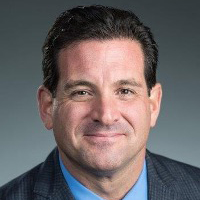CPAs are no strangers to the complexities of taxes, accounting, and compliance. You may even thrive in spreadsheets, easily tackle tax codes, and be the go-to numbers expert in any room. But when it comes to broad-based financial planning—think retirement, estate planning, and investment strategies—do you find the waters a bit murkier?
Why CPAs Need Financial Advisors
If you’ve ever found yourself pondering whether to enlist the help of a financial advisor, you’re not alone. Just because you’re a whiz at accounting and tax planning doesn’t mean you’re automatically an expert in all things finance. The financial landscape is vast, featuring an array of disciplines and areas of focus that extend well beyond your CPA license.
Relying solely on your own expertise might not be enough – actually, it probably isn’t enough. By understanding your own limitations, you can not only protect your financial future but also ensure that you’re taking advantage of every possible investment or financial opportunity. The last thing you want to do is miss a significant opportunity or make a mistake because you were too busy at work, lost in the financial affairs of your clients!
Benefits of Hiring a Financial Advisor
Diversified Expertise
You may be extraordinarily capable of minimizing your taxes on a yearly basis using all the deductions and credits available to you. But what about reducing your lifelong tax obligation, especially when you get to retirement? Issues such as tax-advantaged retirement accounts, Social Security, and withdrawal strategies are all vital aspects of your tax situation that you may not have the knowledge or experience to handle accurately.
A financial advisor’s job is to look at the bigger picture, putting all the pieces together to minimize taxes and increase your wealth, mitigate risk, and help ensure an income stream that will last the rest of your life.
Time Management
After spending hours upon hours poring over financial documents, do you really want to spend your evening doing the same? Or would you rather spend time with your family? Next, imagine life during tax season – long hours with little sleep and basically zero time for your own finances, which could lead to severe mistakes and missed chances.
A financial advisor can assume the heavy lifting involved in planning and monitoring your financial portfolio so you can continue to burn the midnight oil without fear or worry and let you focus on what you excel in – providing accounting services and tax advice.
Access to Specialized Tools and Resources
Even if you do have the time and knowledge to handle your long-term finances, a financial advisor may still have the edge over you due to specialized software for portfolio management, as well as research tools and databases that may not be readily available to the average CPA. These tools allow financial advisors to get their job done quickly and reliably – letting you spend more time with family and friends or pursue your hobbies and interests.
Objective Third-Party Analysis
There is a reason why doctors don’t diagnose themselves, and psychologists don’t analyze themselves. When it comes to ourselves, we are inevitably blinded by emotions and inextricably bound to biases that we cannot escape. As a CPA, you may easily get tunnel vision, caught up in tax codes and accounting practices, and miss the forest for the trees.
An advisor’s unbiased perspective can be invaluable in identifying both opportunities and risks that may not be immediately obvious. Whether challenging a long-held investment strategy or recommending alternative tax solutions, an outside perspective can be an asset in making well-rounded financial decisions.
Strong Personal Relationship
The relationship with a financial advisor often goes beyond mere business interactions—it’s built on a foundation of trust. Because advisors are often entrusted with sensitive financial information and empowered to help make pivotal life decisions, a deeper, more personal relationship naturally forms.
This trust-based relationship fosters open communication and mutual respect, enabling the advisor to truly understand your unique needs and aspirations on a personal level. The result? Tailored, bespoke financial strategies that are not just numbers on a spreadsheet but a roadmap for you and your family’s economic well-being.
Considerations
Cost
While financial advisors can provide a wealth of benefits, they also come at a cost. Some may charge an hourly rate, a fixed fee, or a percentage of assets under management. The fee structure can vary widely and might include additional charges for specific services, such as estate planning or investment management.
However, one of the points of a financial advisor is to build your wealth faster than a DIY approach, even after the fees. Plus, an advisor can provide post-retirement decumulation strategies designed to provide income for life. It’s hard to put a price tag on your peace of mind!
Finding the Right Fit
Considering that your advisor will likely become an essential component of your lifelong financial strategy, it is vital to find an advisor with a personality type and approach to financial planning that aligns with your needs and preferences.
Different advisors have different areas of expertise, approaches to financial planning, and even personality types that may or may not align well with a CPA’s needs and preferences. Factors such as communication style, availability, and specialties within financial planning should all be considered.
Don’t hesitate to interview multiple advisors until you find one you’re comfortable with. Advisors are used to this ‘shopping around’ and are great at making you feel at ease.
In Conclusion
As a CPA, you’ve spent years honing your skills in tax codes, accounting, and financial compliance. You’re the go-to expert in crunching numbers and navigating complex tax landscapes. However, mastering every area of personal finance—from retirement planning to risk mitigation—isn’t just time-consuming; it’s nearly impossible. After all, even experts need experts.
By collaborating with a financial advisor specializing in areas you don’t, you set yourself up for comprehensive financial success. You’ll get insights from specialized software, objective third-party perspectives, and, potentially, a more robust and resilient financial plan for you and your family.








